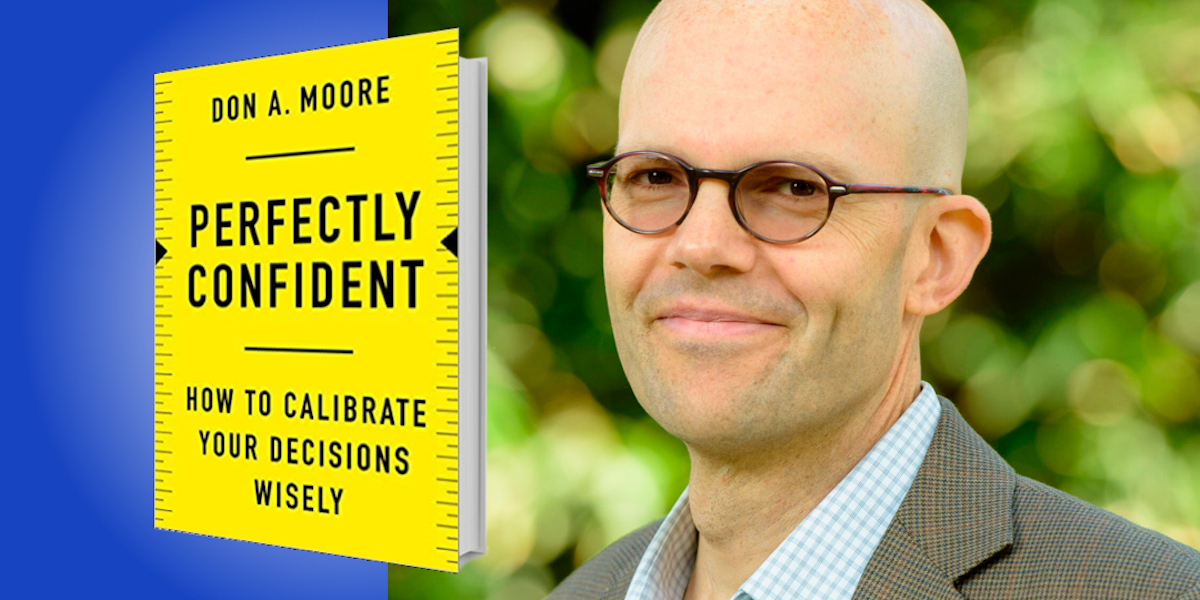Don Moore is a Professor of Management of Organizations at the University of California at Berkeley’s Haas School of Business, where he teaches popular courses in leadership, negotiations, and decision-making. He has authored or coauthored columns published by The New Yorker, The Wall Street Journal, USA Today, Harvard Business Review, and many more.
Below, Don shares 5 key insights from his new book, Perfectly Confident: How to Calibrate Your Decisions Wisely. Download the Next Big Idea App to enjoy more audio “Book Bites,” plus Ideas of the Day, ad-free podcast episodes, and more.
1. You’re probably thinking about confidence wrong.
Many people think that fooling themselves into being more confident will improve their performance and outcomes. After all, we see confidence precede good performance all the time. But in my experimental research, I’ve found little evidence that simply being more confident actually helps you. In fact, deluding yourself into being overconfident actually exposes you to many risks. So work hard and improve your skills, and if your actual potential affords a reason to expect success, you should be confident.
2. Think in probability distributions.
Sometimes we feel pressure to make a prediction that feigns confidence or even certainty in a future event, whether that’s the performance of an investment or the outcome of an election. Instead, it’s best to think about the future as a set of possible outcomes, with probabilities attached to each. This is enormously useful for strategizing and making wise choices. For example, when my wife and I were planning the guest list for our wedding, we estimated the probabilities that each invitee would attend. And sure enough, the number of people who came exactly matched the venue’s maximum capacity.
“Appreciate your tremendous strengths, and respect your specific weaknesses.”
3. Believe the truth.
The evidence shows that willful self-delusion, in which people try to talk themselves into being more confident, is not the best approach to performance. Instead, believe the truth of your situation—appreciate your tremendous strengths, and respect your specific weaknesses. In this way, you can avoid both overconfidence and underconfidence.
4. Capitalize on disagreement.
Rather than avoiding or papering over disagreements, take advantage of the wisdom of the crowd. Others know things that you don’t, so what has led them to their beliefs? Is there useful information to be learned? If you identify the core of your disagreement and you are still convinced the other person is wrong, then devise a wager that allows each of you to bet on what you believe.
5. Don’t fight about the future—bet on it.
Betting on the future forces you to get serious, and turn cheap talk into verifiable claims with real stakes attached. Sharpen the calibration of your own confidence by keeping track of these bets and keeping score. This will help you learn and improve your forecasting ability over time.
For more Book Bites, download the Next Big Idea App today:
































